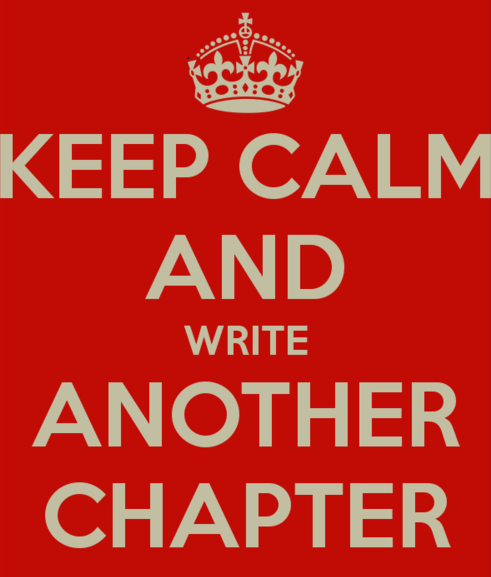It is easy to forget that traditional publishing is a business. And businesses are run by people doing a variety of tasks. Sometimes those people change tasks … and even change companies.
Our agency keeps a living document in a shared folder that allows us to keep up with the various editorial changes in our industry. There are times when we make adjustments every week.
I continue to produce the annual print edition of The Christian Writers Market Guide (preorder the 2021 edition) but also maintain the online edition that captures changes throughout the year.
This past week I was asked by an author about a particular well-known imprint at a major publisher. They thought the imprint was still in place and acquiring new books, not knowing that it had undergone multiple management changes and been all but shuttered.
We also recently discovered that a long-time marketing director had taken a job at a new publisher. A long-time senior editor at a major house had taken the job as head of an entire division at a new publisher. Two editors we know received major promotions within their companies, which meant there were changes at the top of their respective organizations.
And that wasn’t all during the month of July.
There are frequent personnel changes in all businesses. Publishing is not exempt. In other words, the news is rarely earth-shattering but should be considered normal.
Why Should You Care?
Often these changes have no effect on you. But what if it is your editor who leaves the company? What if their promotion means they will no longer be working with you?
This can be unsettling, to say the least. I have a client who is currently working with a fourth new developmental editor in only six years. We jokingly say, “It takes a lot of work to break one in, only to have to do it again!”
I remind every author that they are professionals. Their “job” is to write the next book. The rest will get sorted. Sure, it can be frustrating and upsetting, especially if that treasured editor has become a lifelong friend. (I know of some authors who ended up following that editor to a new publishing company because of that relationship.)
When a long-time friend in the industry retires, I bemoan the loss. A considerable amount of “institutional memory” goes away. But, at the same time, it means new relationships and new opportunities are to begin with incredibly talented people.
The cliched phrase “Keep calm and carry on” should come to mind when contemplating the publishing environment. Thus I created the variation above.
Lean on your literary agent or professional advisors. We tend to stick around. 🙂
Keep writing. Obedience to your calling is a powerful thing.
[If you want to make your own “Keep Calm” poster, go to the Keep Calm-o-Matic site.]





Elva,
In the news: http://www.christianretailing.com/index.php/newsletter/latest/27313-abingdon-press-re-evaluates-publishing-programs-beyond-2015
Steve,
Thank you for being so considerate and thoughtful toward writers that you keep us informed. This is valuable information especially since my non-fiction manuscript is written but still an orphan (no publisher).
The world has shifted underfoot,
and all my hopes seem dashed;
time and demons in cahoots,
the topless towers, crashed.
Where the firmament of yore,
the certainty of space
where through a shining golden door
I could perceive God’s face?
The disarrangement of these days
will fall into new form,
and I, not lost to God’s gaze
will find a brighter norm,
but holy broken chandeliers;
Batman, it just seems so weird!
Is it possible that editor A moving to publisher B and editor C moving in to editor A’s previous slot opens the door to submitting to editor C when editor A had already said, “Thanks but no thanks”?
Damon,
The decision making process in editorial takes on a few levels.
Level #1 – the editor’s desk.
If an editor says “no thanks” here, then it is possible to resubmit to another editor, if the first one leaves the company.
The problem is that we never know if this is where the “no” occurs. Most often the no is after level #2
Level #2 – the editorial board
This is where all the editors meet (usually weekly) to discuss the best and brightest of the proposal they had reviewed. This group decides which are the ones that will go to the last stage. It’s not easy getting past this group, since the next stage has to trust the decision of the Ed Board to bring something to Level #3.
But if you sent a project to an editor who took it to this meeting and then sent it again to another editor who takes it to the meeting again…Not good.
Level #3 – the publication board (or pub board)
This is where everyone meets. Editorial, finance, marketing, sales, and executive management. They give thumbs up or down.
Hope that helps.
“Obedience to your calling is a powerful thing.” That just knocked me out of my pandemic-inspired listlessness. Thanks for the post and the wake up.
Another reason to have an agent. You guys keep track of all the circus rings! I know a lot of writers dream of finding a publishing home and an editor who is “theirs” that sticks with them through their career. Like Maxwell Perkins and Thomas Wolfe in the movie Genius. Not that their working relationship was ideal … hmmm. But you get the point, see the dream. The constantly moving state of the industry must make this dream a rare one. How often to you see it actually happen in real life?
“Keep writing”, indeed. I was blessed to meet Damon Gray on Twitter, and when he asked me what I writing, I answered “not much”. He sternly reproved me, and urged me to write every day, despite all those the daily tasks and distractions. So I did. Thanks, Damon. Fellow writers can be a blessing, but agents are angels.